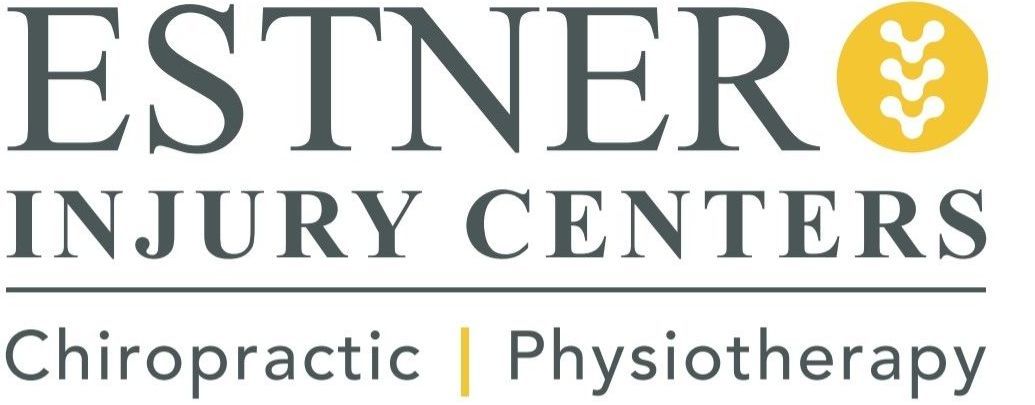6 Types of Headaches You Might Experience After an Accident
Share
Navigating the Pain: Understanding Headaches After a Car Accident
Experiencing a car accident is a traumatic event that can leave lasting physical and emotional scars. One common but often overlooked consequence is the onset of various types of headaches. These headaches can severely impact your quality of life, making it difficult to carry out daily activities and maintain a sense of normalcy. In this blog post, we will explore six types of headaches that you might experience after an accident, their symptoms, and the importance of seeking professional medical help. We will also discuss non-medical management strategies to help alleviate headache symptoms.
Understanding the Types of Headaches Post-Accident
Tension Headaches
Tension headaches are the most common type of headache experienced after a car accident. These headaches are often characterized by a dull, aching sensation around the head, as if a tight band is squeezing it. They can be triggered by stress, muscle tension, or both.
- Causes: Tension headaches can result from the physical strain of the accident, such as whiplash, or from emotional stress and anxiety that follow the event.
- Symptoms: You may feel a constant, non-pulsating pain on both sides of your head. The pain can extend to the neck and shoulders, causing additional discomfort.
- Duration: These headaches can last anywhere from 30 minutes to several hours, and in some cases, they may persist for days.
Migraine Headaches
Migraines are intense headaches that can be debilitating. They are more severe than tension headaches and can significantly impact your ability to function.
- Causes: Migraines can be triggered by the trauma of the accident or by stress and hormonal changes. Individuals with a history of migraines may find that accidents exacerbate their condition.
- Symptoms: Migraines are often characterized by throbbing pain on one side of the head, accompanied by nausea, vomiting, and sensitivity to light and sound.
- Duration: Migraines can last for hours to days and may occur in cycles, making them particularly challenging to manage.
Cervicogenic Headaches
Cervicogenic headaches originate from issues in the cervical spine (neck). These headaches are often mistaken for tension headaches but are distinct in their origin and symptoms.
- Causes: Cervicogenic headaches result from injuries to the neck muscles, joints, or nerves during the car accident, such as whiplash.
- Symptoms: You might experience pain that starts at the back of the head and radiates to the front. The pain is usually on one side and can be accompanied by neck stiffness and reduced range of motion.
- Duration: These headaches can be persistent and may require specific treatments to address the underlying neck issues.
Post-Traumatic Headaches
Post-traumatic headaches develop after a head injury or concussion sustained during the accident. These headaches can manifest in various forms and may mimic other types of headaches.
- Causes: Direct impact to the head or a sudden jolt can cause post-traumatic headaches. The brain's response to injury often leads to inflammation and pain.
- Symptoms: The symptoms can range from dull, tension-like pain to severe, migraine-like pulsations. Dizziness, difficulty concentrating, and memory problems are also common.
- Duration: While some post-traumatic headaches resolve within a few weeks, others can become chronic and last for months or even years.
Cluster Headaches
Cluster headaches are rare but extremely severe. They are characterized by excruciating pain around one eye, often accompanied by other symptoms.
- Causes: The exact cause of cluster headaches is unknown, but they can be triggered by physical trauma or stress related to the accident.
- Symptoms: Intense, burning pain around the eye, tearing, nasal congestion, and restlessness are common. These headaches occur in clusters, happening several times a day for weeks or months.
- Duration: Each headache attack typically lasts between 15 minutes and 3 hours. Clusters can persist for several weeks, followed by remission periods.
Medication Overuse Headaches
Medication overuse headaches, also known as rebound headaches, occur when pain relief medications are used too frequently.
- Causes: Overuse of over-the-counter or prescription pain medications can lead to a cycle of dependency and worsening headache pain.
- Symptoms: Dull, persistent headaches that occur daily or almost daily. You might find that the headache returns as soon as the medication wears off.
- Duration: These headaches can be chronic and may require a period of medication withdrawal to resolve.
Identifying the Symptoms of Each Type of Headache
Understanding the specific symptoms of each type of headache can help you identify which one you might be experiencing and seek appropriate treatment.
Tension Headaches
- Symptoms: Steady, non-pulsating pain on both sides of the head.
- Associated Signs: Muscle tension in the neck and shoulders, sensitivity to light and sound.
Migraine Headaches
- Symptoms: Throbbing, pulsating pain on one side of the head.
- Associated Signs: Nausea, vomiting, sensitivity to light and sound, visual disturbances (aura).
Cervicogenic Headaches
- Symptoms: Pain starting at the back of the head and radiating forward.
- Associated Signs: Neck stiffness, reduced range of motion, tenderness in the neck.
Post-Traumatic Headaches
- Symptoms: Varied pain types, from dull to severe.
- Associated Signs: Dizziness, difficulty concentrating, memory problems.
Cluster Headaches
- Symptoms: Excruciating pain around one eye.
- Associated Signs: Tearing, nasal congestion, restlessness.
Medication Overuse Headaches
- Symptoms: Persistent, daily headaches.
- Associated Signs: Worsening pain when the medication wears off.
The Importance of Seeking Professional Medical Help
If you are experiencing headaches after a car accident, it is crucial to seek professional medical help. Proper diagnosis and treatment planning are essential for managing your symptoms and preventing long-term complications.
Accurate Diagnosis
- Specialist Consultation: A car accident chiropractor or healthcare professional can help diagnose the type of headache you are experiencing.
- Imaging Tests: MRI or CT scans may be necessary to rule out serious conditions and pinpoint the cause of your headaches.
Personalized Treatment Plans
- Medication Management: Your healthcare provider can prescribe medications tailored to your specific type of headache.
- Therapies: Physical therapy, chiropractic care, and other treatments can address underlying issues contributing to your headaches.
Long-Term Monitoring
- Follow-Up Appointments: Regular check-ups ensure that your treatment plan is effective and adjusted as needed.
- Lifestyle Adjustments: Your healthcare provider can offer guidance on lifestyle changes to help manage and prevent headaches.
Non-Medical Management of Post-Accident Headaches
In addition to medical interventions, there are several lifestyle modifications and home remedies that can help alleviate headache symptoms.
Stress Management
- Relaxation Techniques: Practices such as deep breathing, meditation, and yoga can help reduce stress-related headaches.
- Adequate Sleep: Establishing a regular sleep routine can improve your overall health and reduce the frequency of headaches.
Physical Activity
- Regular Exercise: Engaging in moderate physical activity can help relieve tension and improve circulation.
- Stretching: Incorporating stretching exercises into your daily routine can help alleviate muscle tension in the neck and shoulders.
Nutrition and Hydration
- Balanced Diet: Eating a balanced diet rich in fruits, vegetables, and lean proteins can support overall health and reduce headache triggers.
- Hydration: Staying hydrated is crucial, as dehydration can often trigger headaches.
Final Thoughts
Headaches after a car accident can be debilitating, but understanding the different types and their symptoms is the first step toward effective management. Seeking professional medical help for accurate diagnosis and personalized treatment is crucial for long-term recovery. Additionally, lifestyle modifications and home remedies can complement medical treatments and help manage headache symptoms.
Remember, you don't have to suffer in silence. Reach out to a car accident chiropractor or healthcare professional to start your path to recovery. For more tips and personalized advice, consider consulting with a chiropractor in Rhode Island who specializes in car accident injuries. Your health and well-being are worth the effort. Take charge of your recovery today and regain control over your life.

